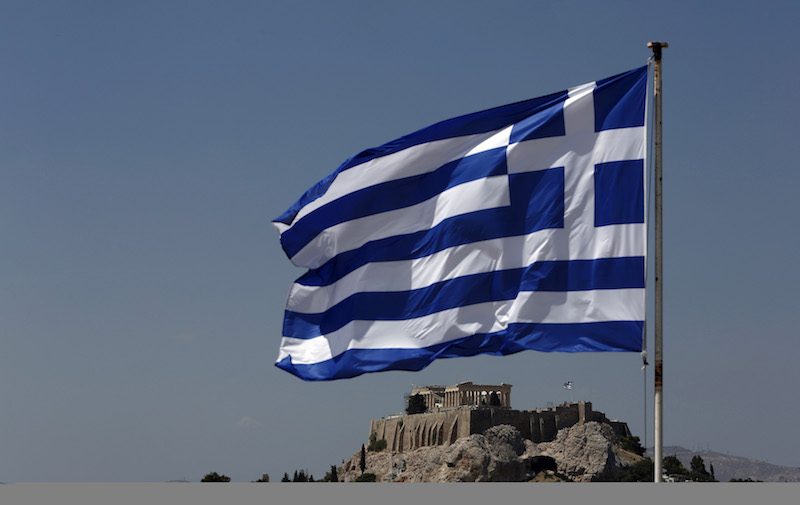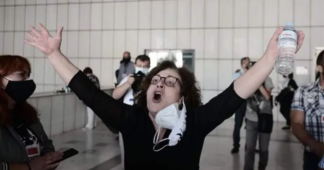By Petros Papakonstantinou (*)
The June 2023 Greek election results announce the entry of Greece into a period of social and political ice age of unknown duration. We have gone from the two-party system of New Democracy-Syriza to the system of one-and-a-half-and-a-third, with the neoliberal Right having the absolute political initiative and ideological hegemony. Its only opponent in the foreseeable future will be itself and the harsh measures it will be forced to take in the new era of high interest rates and government spending cuts, which will follow throughout the capitalist world the temporary, Covid-induced, fiscal easing. The most nightmarish thing is that the three far-right, nationalist, racist and even neo-Nazi formations that entered parliament have together received almost 13% of the vote. The forces of left-wing origin, phraseology or intention (let’s keep the left-wing meter in its sheath for now, for the sake of the discussion’s economy) shrunk to a disappointing degree, with the only positive exception being the noticeable rise of the Communist Party, which somewhat mitigates, but does not reverse the overall picture.
“Well done for Syriza, after having implemented Memoranda”. “I did not want to see Tsipras get away with it”. I have heard in recent weeks this refrain from left-wing people like those referred to by Dimitris Konstantakopoulos in a recent, noteworthy article (https://www.defenddemocracy.
Of course, with the implementation of the third Memorandum, Syriza got past Rubicon without its weapons and without its soul. After the 2019 electoral defeat, albeit not a crushing one, it adopted a blank, centre-left line of opposition, aspiring to absorb PASOK and gain the share of support from the media and the oligarchy that its leadership believed it was entitled to, based on the unwritten rules of bipartisanship. It failed miserably and was decimated. It made the “middle class” its banner and lost the working class as a whole. It tooted the turn to the non-existent Centre and lost all contact with the radical strata. Even the ones who would have liked a more militant, popular line did not question the centre-left strategy of the leadership group, but tried to fill the gap with hysterical cries – only to confirm that a barking dog does not bite and to repel both the famous centre and leftists who are not fascinated by new versions of Avriani {Greek populist journal }.
Moreover, whatever awkward “openings” Tsipras tried, the centers of power would never forgive him two things: That he played a forbidden game when he decided to ride a radical, potentially antisystemic popular wave, with the general strikes, the occupied squares and the Indignated, and that he legitimized in popular consciousness the belief that the Left can rule in this life and not only after the second, socialist Advent .
This is the main reason that explains a truth disturbing to many: despite the fact that SYRIZA has long ceased to be an antisystemic leftist force, the entire oligarchy and the deep state formed in these elections a block against it, while being sympathetic, if not defiantly supporting all the other opposition forces that could cut off Syriza’s votes. It was not only because he represented, despite his capitulation, a certain, albeit weak, buffer against the neoliberal steamroller. Mostly it was because any remnants of the legacy of the great upheaval of 2010-2015 in popular consciousness had to be crushed. This is what Kyriakos Mitsotakis meant on Sunday night when he celebrated “the closing of a decade-long cycle of toxicity” – unfortunately with good reason.
In any case, the election result records not only the shrinking of SYRIZA, but also a deeper, conservative shift in Greek society that has multiple causes, which require serious, collective reflection, free of stereotypes and superficial answers. When one hears that the bulk of those who voted the “Spartans” were young, at most high school pupils or high school graduates employed in the private sector, it should ring a hundred bells about the phenomena of lumpenisation and degeneration that pervade some sections of the working class. Of course, not all young people working in delivery are neo-Nazis. But the generalisation of precariousness, the dismantling of collective agreements and trade unions, the spread of teleworking, the weakening of social relations in the period of pandemic and lockdown, all these and many more contribute to form a society of low expectations and heightened fears, which pushes us into our individual shelters, from where we see the Other as a potential threat in the incessant struggle of the lonely Survivors for mere survival. (Even “physical distance” has become “social distancing”: when the enemy rules the language, he rules the souls).
Unless the very real, material substrate of this dystopian social order is overturned, the soil will always be fertile for all the flowers of evil, in the forms of nationalism, racism or even neo-fascism. Besides, Greece in this respect is no exception. From the Scandinavian North, where Sweden and Finland have recently obtained right-wing and far-right coalition governments, to Meloni’s Italy and perhaps next month Vox’s Spain, events are booming. Political and moral barriers are falling, the systemic right is fully normalising the racist far right, and the mutations in the consciousness of the masses sometimes go far beyond the material Being: in Germany, the AfD did not grow in 2015, when migratory flows due to the war in Syria were at their peak and Merkel was opening the doors to refugees. It is rocketing to second place, poll-wise, today, at a time when Germany has a severe shortage of workers and the parliament is passing a law to make it easier for skilled migrants to settle in the country.
What is there to say now, that is the question, to quote Anagnostakis ( https://en.wikipedia.org/wiki/
After the successive defeats of the socialist revolutions and movements in Central Europe and Italy, the Fourth Congress of the Communist International (1922), under Lenin’s leadership, laid the foundations for the strategy of the United Front: without invalidating their separate identity and without forgiving anything to social democracy, the communists of that time turned to the formation of the broadest possible front of parties, trade unions and organisations to stop the capitalist offensive that threatened the very foundations of the collective existence of the working class and its degeneration into a pulverised mass of defeated individuals. In 1928, when Mussolini was already in power, Hitler was gaining momentum and Lenin was long dead, the Stalinist International drew the line of the “Third Period”, based on the assessment that capitalism was on its heels and that “social-fascist” social democracy was the main enemy of communism. Of course, 2023 is neither 1928 nor 1922, and history does not repeat itself.
But maybe it has something to tell us…
(*) Journalist, veteran militant of the Communist Party, which he left when it made an alliance with the right against PASOK. He subsequently milited in the ranks of the Greek radical Left, Translated from Greek Πενήντα αποχρώσεις του μαύρου, του Πέτρου Παπακωνσταντίνου – Kommon, by Christos Marsellos
We remind our readers that publication of articles on our site does not mean that we agree with what is written. Our policy is to publish anything which we consider of interest, so as to assist our readers in forming their opinions. Sometimes we even publish articles with which we totally disagree, since we believe it is important for our readers to be informed on as wide a spectrum of views as possible.











